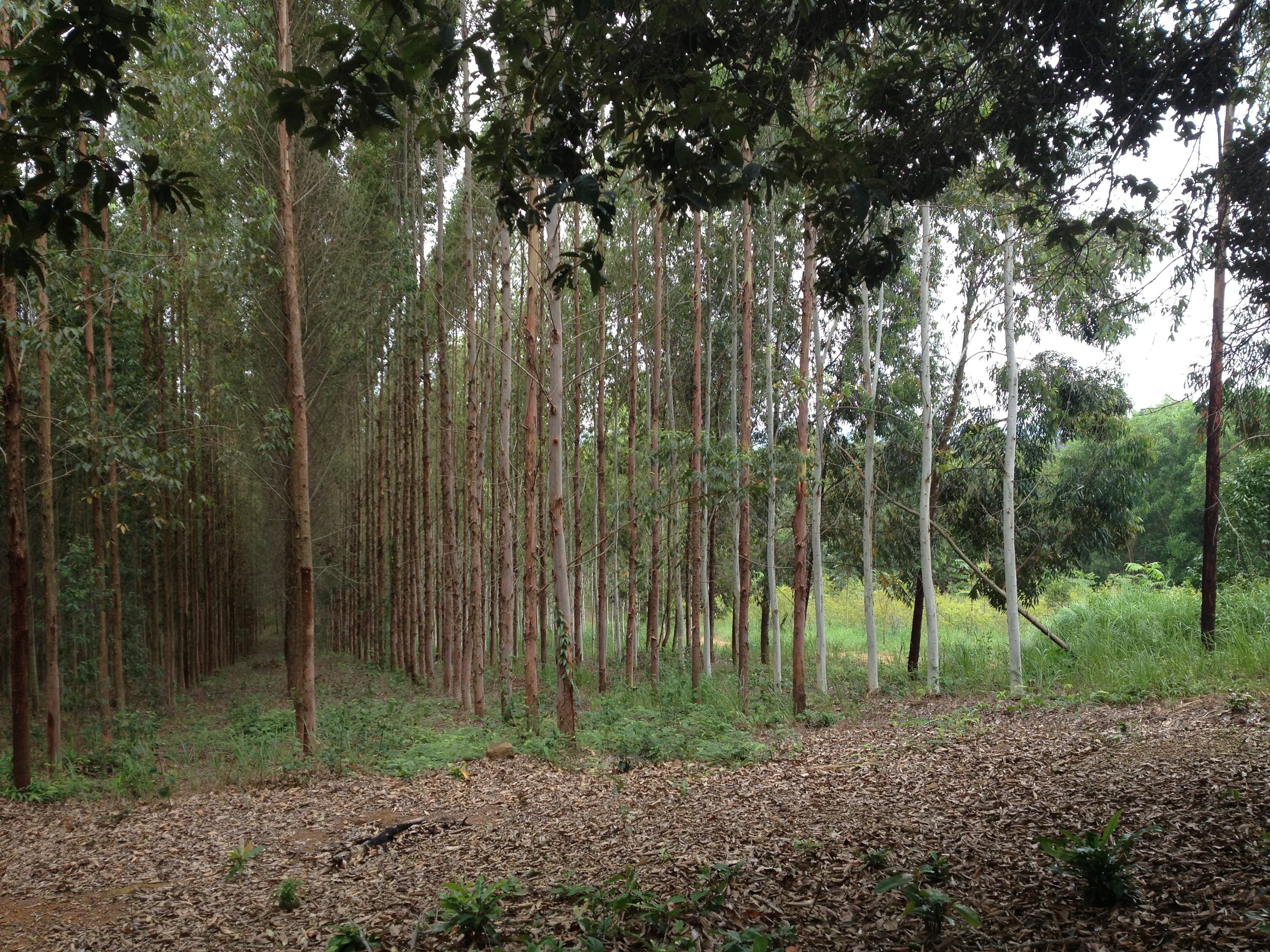Got a question? Biomass may be the answer

By selecting proper species and breeding experiments as well as genetic modifications as done here in Thailand, fast growing species plantations are capable of producing enormous amounts of biomass within short periods of time. The challenge is, however, to sustain soil fertility, biodiversity and other ecosystem services such as clean water. (Photo by Viktor Bruckman)
It’s just possible that sustainable biomass could be, if not a panacea for the world’s energy challenges, then perhaps the next best thing.
And not only the energy sector would benefit. The reasons for the sustainable use of biomass are many and good, says Dr Viktor Bruckman of the Commission for Interdisciplinary Ecological Studies at the Austrian Academy of Sciences.
In addition to the energy aspect, he adds that biomass offers a range of possibilities as a valuable feedstock for industrial processes. Chemical compounds in biomass can be separated and rearranged to produce everything from composites for use in the automobile industry, to fibres to pesticide ingredients, among others.
He, along with Dr Sanjeev Kumar Chauhan of India’s Punjab Agricultural University and Dr Robert Jandl of Austria’s Federal Research and Training Centre for Forests, Natural Hazards and Landscape, will present a session entitled Sustainable Biomass for Energy and Industrial Raw Materials at the IUFRO World Congress this fall in Salt Lake City, USA.
In the session, Dr Bruckman and his colleagues will provide a review of current issues in biomass development from biomass cultivation to development of biomass-based products and conversion of biomass to energy, with a strong focus on forests. They want to identify hotspots and deficits in research and to provide a platform for international discussion and for the initiation of collaboration across borders and topics.
Outlining some of the positive attributes of biomass use, Dr Bruckman points out that it’s a renewable feedstock so its availability is nearly infinite and it has a value-added aspect in that it could create green jobs in remote areas.
As opposed to crude oil, biomass can be produced just about anywhere, so it has the potential to make the energy economy foundation more resilient. On the other hand, fossil fuel pricing – especially crude oil – is vulnerable to declining stores of easily available resources and political instability, among other issues.
Biomass is also nearly greenhouse gas neutral. Carbon released during its utilization was taken from the atmosphere during growth and, he adds, if used to feed industrial processess, it is also carbon-negative so long as the carbon sequestered during growth is trapped in the new material or product (and the longer the product’s life cycle, the better from a carbon sequestration perspective).
In some cases, he suggests, biomass feedstocks may even grow on marginal soils that are unsuitable for agriculture.
But he also notes that, on the other side of the biomass utilization ledger, there are some critical challenges that must be met head-on, including the possibility of competition between biomass crops and primary agricultural production.
Physical space is another issue. Biomass needs area in which to be produced and this implies land use change and some related negative consequences of that. Intensive cultivation may trigger groundwater pollution or exhaustion in dry regions and it may also trigger soil degradation which is difficult, if not impossible, to repair.
Dr Bruckman also notes that, from an ecological and carbon perspective, plus the related loss of biodiversity, changes to local climate and the release of large amounts of carbon into the atmosphere, it is a major negative factor if tropical forests are clear-cut to establish biomass crops.
But, he says, while these issues are indeed critical, they are not insurmountable. They can be addressed and overcome through research, multinational cooperation and the development and sharing of best practice guidelines.
It becomes a question of ensuring the measures taken to enhance biomass production are correctly implemented and appropriately managed, Dr Bruckman says.
A biomass system cannot be based on existing “fossil” infrastructure, and that is an important factor to keep in mind, he adds. To Dr Bruckman that means bio-based economies will have to act in a more localized and decentralized fashion. This will make the whole system more flexible and should help mitigate negative consequences from land use changes.
There is a need to develop the biomass sector, Dr Bruckman says, in order to sustain the planet for future generations. There is a huge potential. But biomass development, management and utilization must be science-based in order to rule out potentially negative consequences.
See you at the IUFRO 2014 World Congress!
http://iufro2014.com/
Follow IUFRO 2014 on Twitter! Join IUFRO 2014 on Facebook!
———————————————————–
Related Links
IUFRO Working Party 7.01.03 – Impacts of air pollution and climate change on forest ecosystems – Atmospheric deposition, soils and nutrient cycles, http://www.iufro.org/science/divisions/division-7/70000/70100/70103/
IUFRO Research Group 1.03.00 – Short-rotation forestry, http://www.iufro.org/science/divisions/division-1/10000/10300/
IUFRO Task Force on Forest Bioenergy, http://www.iufro.org/science/task-forces/forest-bioenergy/
IUFRO Spotlight main page, http://www.iufro.org/media/iufro-spotlights/
———————————————————–
IUFRO Spotlight is an initiative of the International Union of Forest Research Organizations. Its aim is to introduce, in a timely fashion, significant findings in forest research from IUFRO officeholders and member organizations to a worldwide network of decision makers, policy makers and researchers.
IUFRO Spotlight issues up to October 2014 will primarily focus on the IUFRO World Congress that will take place on 5-11 October 2014 in Salt Lake City, Utah, USA. The topics of individual Congress sessions will be highlighted in order to draw attention to the wide variety of themes that will be addressed at the Congress and their importance on a regional and global scale. Find the IUFRO 2014 World Congress Scientific Program at: http://iufro2014.com/scientific-program/overview/

Leave a Reply